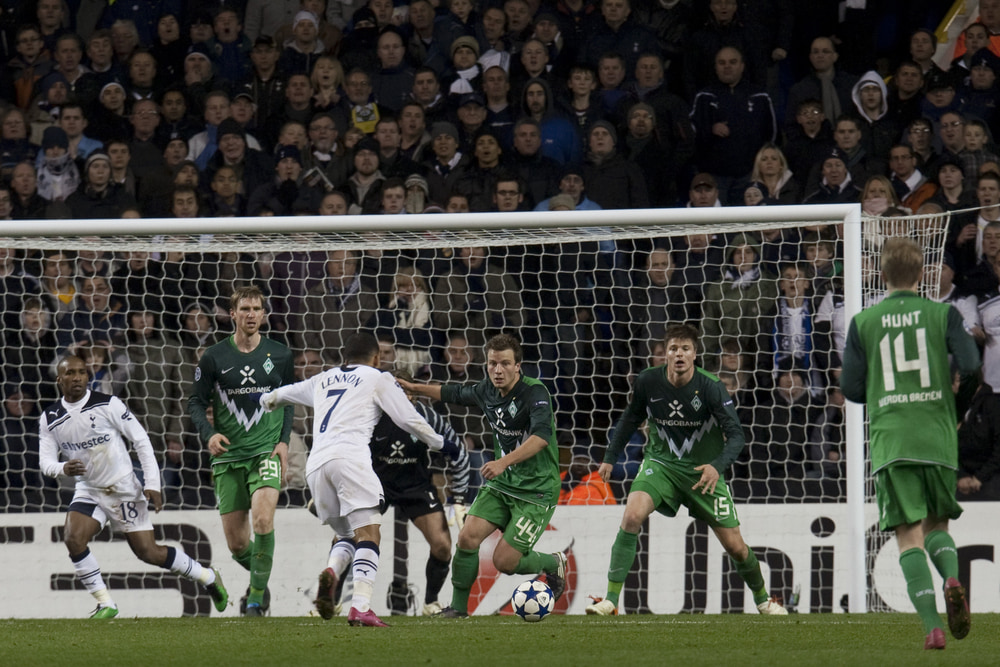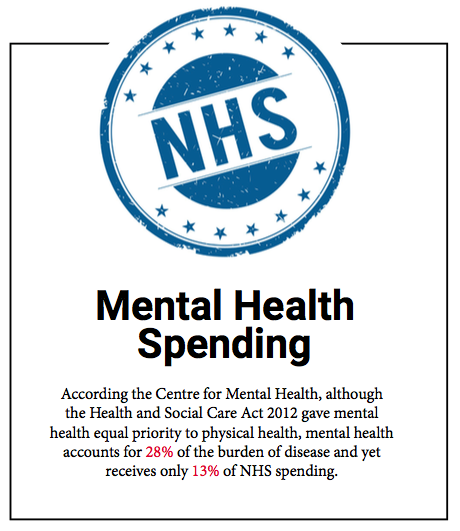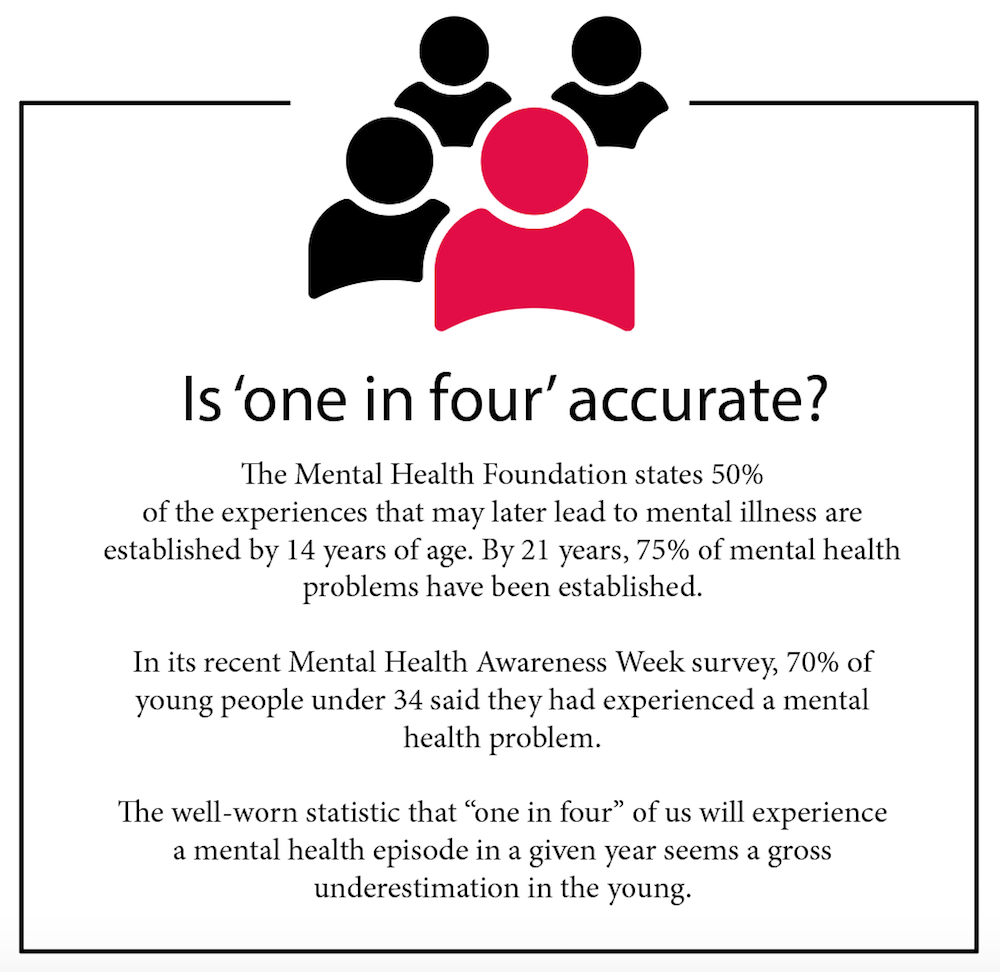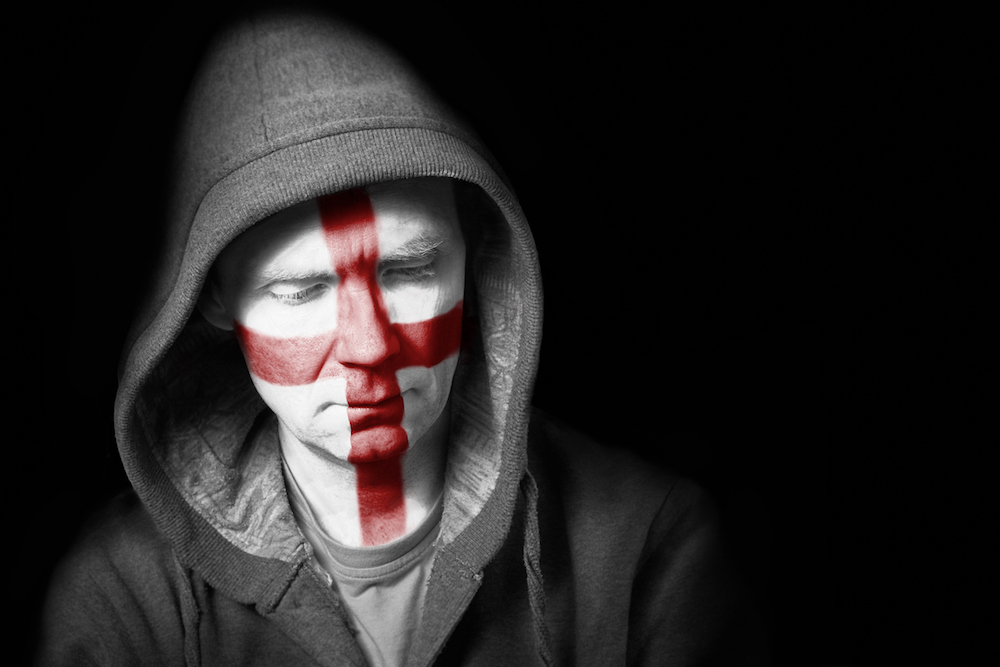We hear lots of good intentions when it comes to mental health and football, but what is actually being done to help professional players and managers? And why are footballers still afraid to speak out about mental health issues? Happiful examines the culture of hyper-masculinity that persists on the pitch (and in the locker room), and uncovers some ugly truths about the beautiful game

In 2015, after re-signing Aaron Lennon on a three-year deal worth £4 million, the Everton manager at the time, Roberto Martinez, delightedly informed the press: “We know we are getting a player our fans know inside-out.” It’s a statement that proved to be tragically false in April this year, when the ex-England international was detained by police under Section 136 of the Mental Health Act.
Mental health has become an increasingly prominent topic in football in recent years following the tragic suicides of German international goalkeeper Robert Enke in 2009, and Wales manager Gary Speed in 2011. Suicide remains mercifully rare, but Lennon’s committal to hospital does represent an extreme example from within the world’s most watched football league.
Official statistics suggest as many as one in four people in the UK will suffer a mental health problem in any given year, so it would be inappropriate to make any direct association between Lennon’s illness and his job as a footballer. Undeniably, however, it was his fame as a footballer that marked Lennon out for special attention. Attention that was, in many cases, less than sympathetic.

Aaron Lennon playing for England. Image | Mitch Gunn / Shutterstock.com
The reporting of Lennon’s committal by certain sections of the media was malicious to say the least. The Daily Mail was widely condemned for emphasising Lennon’s wages in a tweet which read: “£55,000-a-week England footballer Aaron Lennon is detained under Mental Health Act after stand-off with police.”
Such irrelevant reporting was criticised by ex-Everton captain Phil Neville and the former Labour Party spin-doctor Alastair Campbell, who has previously battled with depression and alcoholism. And yet, the notion that millionaire footballers are somehow immune to mental health problems and ought to simply “man up” remains the default opinion of well-known media commentators and, it must be said, a wide section of the general public.
Mercifully, Lennon returned to pre-season training with Everton in July, but the public remain as complicit as the media and the game itself, especially in the mental and physical harm sportsmen and women inflict upon themselves and each other.
As the game appears to get inexorably richer, footballers are treated less like ordinary members of society, even if the vast majority earn a fraction of the riches bestowed upon the best Premier League players. Indeed, beyond the rarefied atmosphere of the Premiership, far more players – especially in Scotland – are employed on a part-time basis. Footballers of all standards are, nonetheless, regarded as “role models”, who are constantly expected to demonstrate unrealistic standards on and off the field.
Supporters, who often invest a great deal of their personal identity in a club, now enjoy previously unknown levels of access to players thanks to social media. Sadly, much of this access is used to criticise poor performances or behaviour. Indeed, Lennon was accused of being a “miserable bastard” for failing to smile in photographs following his transfer to Everton. Yet the public remain ignorant of the everyday realities and pressures of professional football that threaten or suppress a player’s true self.

Previously a professional with Portsmouth, Dr Martin Roderick, author of The Work of Professional Football: A labour of love?, explains that the “culture of fear” recently exposed in British cycling has a long history in football: “From a very young age, players are subject to highly precarious employment practices. Nobody, player, coach or manager, is comfortable, and voices of dissent are silenced – if they ever emerge.”
Sports governing bodies have a long history of simply paying lip-service to issues such as racism, bullying, homophobia, gambling, addiction and even corruption
In a results-driven business, a player’s true self (and their physical and mental wellbeing) is habitually sacrificed for extremely short-term goals. Managers and players are only as good as their last result, and the pressure to win encourages a culture of hyper-normative masculinity.
Physical “toughness”, which frequently requires players to play when injured, goes hand-in-hand with mental strength and an implicit image of heterosexuality. Young or old, wealthy or poor, gay or straight, fit or injured, contented or depressed, Roderick emphasises that many players, no matter how successful, wear a mask of conformity: “You have to look like you want to be there.”
As the tragic case of openly gay footballer Justin Fashanu, who killed himself in 1998, or the more recent conspiracy of silence in relation to widespread child abuse implies, such an environment leaves little room for those who do not fit such a clichéd sporting identity. Thankfully, the attitudes and influence of “old school” managers such as Brian Clough or Bill Shankly, who infamously referred to “poof bandages” and called injured players “bastards”, are in decline.
And yet, old habits die hard.
Younger managers, including the ex-Inverness Caledonian Thistle manager, Richie Foran, who helped launch Scottish Football’s “Support Within Sport” campaign, worryingly reverted to the “man up” language of old when fighting a futile relegation battle last season.
The “Support Within Sport” initiative, which aims to identify and treat mental health issues among players and coaches, was launched in 2016 following research by Dr Katy Stewart, of the Hampden Sports Clinic (HSC), into the incidence of mental health issues in male players across the 42 clubs in the Scottish Professional Football League. The survey, which was funded by the UEFA Research Grant Programme, asked two simple questions:
1. “Have you, or a fellow player, experienced a mental health problem?”
2.“Who would you want to talk to about a mental health issue?"

The results revealed alarming levels of anxiety and depression within Scottish football, with 64% of the 600 respondents revealing that they, or a teammate, had experienced a mental health issue. A supplementary questionnaire identified 40 players suffering a significant issue at the time, and 15 of these were immediately referred for more intensive treatment available, free of charge, under the programme.
Although a number of contributory factors were identified, Dr Stewart’s research revealed how one of the key triggers of mental illness stems from the precariousness of football employment. Managers and players need to be extremely mobile in order to secure work, and frequent moves, often at short notice, to various parts of the UK or abroad, can lead to loneliness and depression.
64% of 600 Scottish football players revealed they, or a teammate, had experienced a mental health issue
Such social isolation may even be experienced within a club environment. Long-term injuries are an obvious contributory factor, but others, such as Lennon being denied a first team squad number by Tottenham manager Mauricio Pochettino, are similarly isolating and damaging to a player’s self-esteem.
Such ingrained practices will undoubtedly continue in football, but the results confirmed the urgent need for a robust system within the professional game to deal with their effects. Thus, the HSC, together with the Professional Footballers’ Association of Scotland (PFAS), established a programme of welfare specifically designed to look after
the professional game.
The PFAS programme established a 24-hour helpline that provides immediate access to an experienced sports medicine doctor. And, if necessary, the player can be referred to a specialist dealing with addiction, general counselling, and experts in both sport and clinical psychology or clinical psychiatrists and psychologists within a week.
Recognising that making a phone call is still an enormous step for some players, the HSC and a group of students from Strathclyde University have also developed an app called “SUPPORT”, through which players can access self-help advice or send a message directly to a doctor.
In England, anecdotal figures have emerged. Like the PFAS, the Professional Footballers Association (PFA) also operates a 24-hour helpline. Michael Bennett, the PFA’s Head of Welfare, has disclosed that 160 players had requested help in 2016. The number of past and present players seeking help, Bennett adds, is “growing year on year”. But as more than 60% of those seeking help in 2016 were former players, the numbers suggest the prevailing culture of football still stops current players from coming forward.
Governing bodies, superficially at least, appear keen to bring about a cultural change. The Football Association (FA) in England, like the Rugby Football Union, Lawn Tennis Association, and the England and Wales Cricket Board (ECB), have signed up to the Mental Health Charter for Sport and Recreation. Regrettably, the Charter – like similar “awareness” initiatives including “Time to Change” – relies upon players and coaches to look out for each other rather than provide pro-active structural support.
As valuable as raising awareness and encouraging peer support is, the Charter represents what Isabella Goldie, Director of Development and Delivery at the Mental Health Foundation, calls “the cheaper option”. An all too familiar route, as governing bodies have a long history of simply paying lip-service to issues such as racism, bullying, homophobia, doping, gambling, alcohol addiction, and even corruption.
Just as the Scottish Football Association and Scottish Professional Football League have showed no interest in supporting any of the PFAS wellbeing programmes, Rio Ferdinand has widely criticised the FA for failing to deal
with racism head on.

Graeme Fowler, a mental health ambassador for the Professional Cricketers’ Association (PCA), also believes that football, despite the good work of the PFAS and the PFA, has failed Lennon: “Football is an incredibly wealthy sport. But [Lennon] had been left to his own devices. They have not come up trumps for him. There has not been a great support network.”
Cricket is one sport with a long association with mental illness. The very nature of the game (it has been argued) leading to a number of suicides and even a book – David Frith’s By His Own Hand – was published on the subject. Cricketers experience the same pressures as footballers, but there are crucial differences in scale that have helped cricket confront the issue of mental health following the infamous withdrawal of Marcus Trescothick from the 2006/7 Ashes series.
Ian Thomas, Head of Development and Welfare at the PCA, passionately believes the provision of mental welfare cannot be a tick-box approach: “We have to take it very, very, seriously. Putting posters on the wall is not enough.” But, he concedes, with only 18 professional counties employing some 420 cricketers at any one time (and some 3,000 retired members), the issue is easier to deal with compared to football. In figures that suggest the true scale of the problem in football remains unknown, 79 players were supported by the PCA in 2016.
While support is manifold, Thomas is at pains to stress that the PCA “wouldn’t be able to deliver their Personal Development and Welfare Programme without the ECB’s support”. Within months of the Trescothick incident, a 24-hour helpline was established and the PCA, who launched their “Mind Matters” initiative in 2012, operate addictive behaviour clinics, online tutorials, a mental health members’ app, educational talks, and resilience workshops at each county for current professionals.
The Mind Matters initiative has succeeded in making the counties, and all their staff, more accustomed to talking about, or dealing with, mental health issues. But most significantly, the scheme has helped to establish clear lines of responsibility.
Sadly, this is something yet to be established in football. As former Burnley player Clarke Carlisle pointed out in the Guardian earlier this year, for all the various initiatives “there is no legislation for football clubs to follow. The Football Association has not put in place measures for the psychological and emotional wellbeing of their employees. It’s in the contracts that they should take care of any injury – physical or mental – and pay for the rehabilitation, but there is no stipulation about the base level of care that is needed.”
The entirely avoidable consequence of this is that football players are at the whim of their managers, or their club, as to the nature of their mental health treatment. Frequently, as England player Steven Caulker’s experience with Queens Park Rangers suggests, players often reach rock bottom before seeking help. “Disaster recovery,” Carlisle emphasises, “should only be a percentage of the support that is out there.”

For all their signing up to various charters and empathetic press releases, it seems the official bodies that control the game, and reap most of the financial rewards, either kick this sensitive issue down the road or abdicate responsibility altogether. Indeed, the only external finance received by the “Support in Sport” initiative in Scotland is from the bookmaker William Hill, via its Corporate Social Responsibility Programme.
By failing to support welfare initiatives in more practical terms, the football authorities are, in fact, replicating the national trend. Barring a short period between 1997 and 2010, investment in mental health services has been in steady decline since 1979. Culminating in the 1990 National Health and Community Care Act, under-investment went hand in hand with the increasing delegation of responsibility for mental health services by central government. This placed the principal responsibility for “community-based”, rather than institutional care, on local authorities, charities or even a patient’s family. In spite of the sport’s fabulous wealth, the same may be said for football.
The stark truth is that it has been a select band of ex-players, charities and trade unions that have taken the lead. While the Premier League provides universal mental health training to all their academy staff, it is clear, as Evans states, there is “little duty of care towards the employees” in football when compared to cricket. Ex-professionals such as Clarke Carlisle and former Arsenal captain Tony Adams – both of whom have battled mental illness – are not only the greatest advocates for better mental health provision in football, but also the development of improved treatments. Adams, one of the first footballers to reveal the extent of his mental illness, established the Sporting Chance Clinic in 2000 with the proceeds of his 1998 autobiography Addicted.
The Football Association has not put in place the measures for the psychological and emotional wellbeing of their employees
Sporting Chance is now the largest provider in the world of education and treatment for professional athletes from a variety of sports, and it highlights that mental health illnesses do not always manifest themselves, as is frequently assumed, upon retirement.
Similarly, Carlisle has launched the “Clarke Carlisle Foundation for Dual Diagnostics” – the first of its kind in the world. Unlike the resource-deficient NHS, which forces patients to choose which one of the many related conditions to treat first, Dual Diagnostics promotes the idea that all aspects of mental illness (depression, anxiety, addictions, self-harm, and so on) be treated simultaneously from the beginning.
As Saffron Cordery, Director for Policy and Strategy at NHS Providers, has recently highlighted, the success of anti-stigma campaigns have resulted in more and more people coming forward for help. But, in the absence of adequate financial investment – Health Secretary Jeremy Hunt says there will be 21,000 more nurses, therapists and consultants working in mental health services in England by 2021 – there is “a growing gap between the government’s welcome ambition for the care of people with mental health needs and the reality of services they are receiving on the front line”.
The shortage of funds notwithstanding, NHS Trust leaders are struggling to find sufficient staff to deal with the emerging “pandemic” of mental illness, let alone develop innovative treatments, regardless of Hunt’s recent announcement. As Carlisle reveals: “Everything in place is based on centuries-old models of sanatoriums, and [treatments] are not up to speed with modern society and modern living.”

While it is a truism that football, like other sports, does not exist in a social vacuum, it does seem that modern society (and modern living) increasingly reflects football rather than the other way around.
The precarious nature of short-term, performance related, and transient employment witnessed in the football business is now increasingly common in businesses as diverse as the Newcastle United owner Mike Ashley’s Sports Direct and the UK’s elite universities.
Unlike football however, where employers are legally obliged to provide (no matter how ambiguously defined) for the physical and mental care of their employees, the zero-hours contracts that define the UK’s burgeoning “gig economy” guarantee little in terms of work or wages, let alone statutory sick pay, holiday pay, pensions or health care. Undoubtedly, mental health is the societal problem of our time. But do we expect too much from an underfunded NHS when dealing with problems that frequently have such obvious underlying socioeconomic origins?
It’s here that football and society diverge.
Football has the money, but those in charge appear reticent to make the cultural changes required. Whereas government seemingly has the desire to help, yet a self-imposed age of austerity means there is insufficient money to provide the services needed. There is clearly room for improvement in both football and society.
Yet, for all the precariousness of a relatively short career, professional footballers do enjoy a privileged position.Players who are unfortunate enough to suffer mental illness do, at least, have almost immediate access to the vital health services denied to those who rely on the NHS. We can only hope the rest of UK society can enjoy the same level of provision in the near future.
Dr Duncan Stone is a historian with an interest in the relationship between class and culture, and the role of sport in contemporary society.


Comments